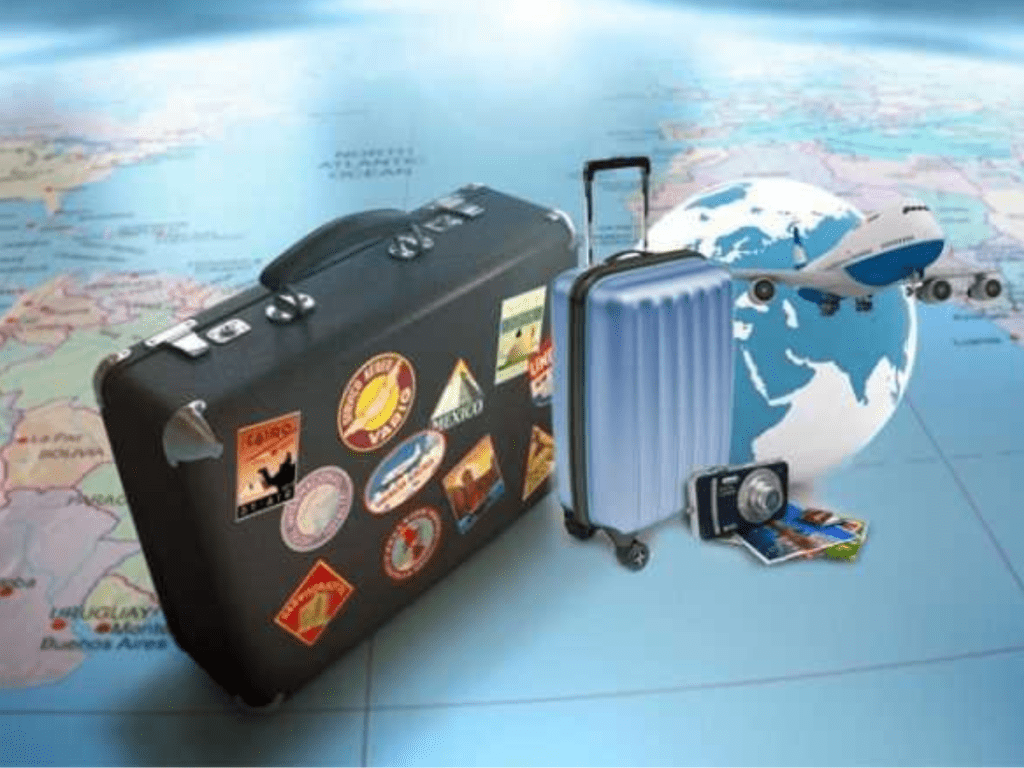Introduction
Travel insurance is often overlooked or misunderstood by many travelers. When people think about the risks of traveling, they often don’t consider what might happen if their trip is disrupted due to unexpected events. While the idea of purchasing insurance might seem unnecessary to some, it can be a lifesaver when things go wrong. However, there are several common misconceptions about travel insurance that may cause confusion or even discourage potential buyers. This article will explore and debunk these myths, providing clarity on the importance of travel insurance and how it can be a valuable investment for any traveler.
Myth 1: “Travel Insurance is Only for International Trips”
One of the most pervasive myths surrounding travel insurance is that it’s only necessary when traveling internationally. Many people believe that if they are traveling domestically, they don’t need the protection that travel insurance provides. However, this is far from true.
While it’s easy to assume that domestic trips are less risky, they can still be fraught with unforeseen issues such as flight cancellations, medical emergencies, or trip delays. In fact, the benefits of travel insurance are applicable no matter where you are. For example, trip cancellation coverage can be useful if you need to cancel your trip due to illness, family emergencies, or other covered reasons, even if your travel is limited to within your own country.
Additionally, medical emergencies can happen anywhere, and without adequate coverage, out-of-pocket expenses can quickly become overwhelming. Whether you’re traveling internationally or just a few states over, travel insurance is an investment in your peace of mind.
Myth 2: “Travel Insurance Only Covers Flight Cancellations”
Many people think that travel insurance is only there to cover the costs of a canceled flight or trip. While flight cancellation coverage is a significant component of travel insurance, it’s not the only thing it covers. Travel insurance plans are often more comprehensive than most travelers realize.
In addition to trip cancellations, travel insurance typically covers trip interruptions, delays, lost baggage, medical emergencies, emergency evacuation, and sometimes even coverage for missed connections. Some policies even cover unforeseen events such as natural disasters or terrorism that may prevent you from traveling. Depending on the policy, you might also be able to add extra coverage for activities like adventure sports, car rentals, or the rental of additional travel gear.
By purchasing travel insurance, you are essentially safeguarding a broad range of possible travel disruptions. It’s important to understand the full spectrum of coverage available, rather than assuming it only helps when flights are canceled.
Myth 3: “I’m Already Covered by My Credit Card, So I Don’t Need Travel Insurance”
Some travelers mistakenly believe that their credit card provides sufficient travel insurance coverage, especially when booking flights with a credit card. While it’s true that certain credit cards offer travel-related insurance benefits, these often come with limitations that make them insufficient on their own. The coverage provided by credit cards is often basic and might only cover specific situations, such as flight delays or baggage loss, and may not provide protection in other areas such as medical emergencies or trip cancellation.
Additionally, credit card insurance might only be applicable when you pay for your trip with that specific card. Moreover, these benefits often come with numerous exclusions, such as a cap on reimbursement amounts, limited coverage for medical emergencies, or restrictions on certain destinations. Many credit cards also require you to meet specific criteria or take particular actions, such as booking the entire trip with the card or notifying the issuer of travel plans in advance.
Travel insurance, on the other hand, provides more comprehensive and customizable coverage. It’s also designed to provide protection in a wider variety of scenarios, giving you greater peace of mind. Don’t assume that credit card coverage is a substitute for a complete travel insurance policy; instead, carefully evaluate the terms and consider purchasing additional coverage if needed.
Myth 4: “Travel Insurance is Too Expensive”
Many travelers avoid purchasing travel insurance due to the belief that it’s too expensive. While it’s true that the cost of insurance can vary depending on the trip, the type of coverage, and the duration of the journey, travel insurance is often more affordable than most people realize. The cost of travel insurance typically ranges from 4% to 10% of the total cost of the trip, which can be a small price to pay when you consider the potential financial burden of an unexpected emergency.
When you factor in the potential costs of medical emergencies, trip interruptions, lost baggage, or a canceled flight, the price of insurance seems quite reasonable. Think of travel insurance as a small but wise investment that could save you thousands of dollars in case something goes wrong. Moreover, many insurance providers offer a variety of plans, so you can choose the coverage that fits your needs and budget.
Ultimately, the question isn’t whether travel insurance is expensive, but whether the risks of not having it are worth the potential cost. When you weigh the benefits against the cost of the premium, it becomes clear that travel insurance is an affordable and valuable protection plan.
Myth 5: “Travel Insurance Will Cover All Medical Expenses”
While travel insurance often includes medical coverage, it’s important to understand the limitations and exclusions of such coverage. Medical emergencies abroad can be expensive, and while travel insurance may help with medical bills, it doesn’t necessarily cover all types of expenses.
First, many travel insurance policies come with exclusions for pre-existing medical conditions, so if you have an ongoing health issue, you may not be covered for any medical events related to that condition. Additionally, some plans may limit the amount they will pay for certain types of treatment or have specific requirements for what is considered “emergency care.” For example, if you need treatment in a private hospital, your policy may only cover treatment in public hospitals.
Moreover, while medical expenses are often covered, emergency evacuation and repatriation back home can be an expensive and complicated process. In some cases, medical insurance within a travel insurance plan may not cover the full cost of medical evacuations, especially for less common destinations.
To avoid misunderstandings, it’s important to carefully read the terms of your policy and ensure that it offers the level of medical coverage you require. You may also want to consider purchasing additional coverage if you’re planning to engage in higher-risk activities or traveling to a remote area.
Myth 6: “I Don’t Need Travel Insurance If I’m Healthy”
Some travelers believe that they don’t need travel insurance if they are in good health. While it’s true that healthy people are less likely to need emergency medical care, unexpected accidents and illnesses can happen to anyone, regardless of their health status. No one is immune to health problems, and a sudden illness or accident can disrupt your travel plans and result in expensive medical bills.
For example, even if you’re in perfect health, you could still suffer an unexpected injury, get food poisoning, or face a sudden illness that requires treatment while abroad. Without proper insurance, these situations can lead to high out-of-pocket costs, especially in countries with expensive healthcare systems.
In addition to medical emergencies, travel insurance can also protect against other unforeseen issues, such as trip cancellations, delays, or baggage loss. Having coverage is a safety net that ensures you won’t face financial hardship due to unpredictable events.
Myth 7: “Travel Insurance Covers Any and All Cancellations”
Travel insurance typically provides coverage for trip cancellations, but there are limits to what is covered. Most policies have specific reasons for which you can cancel a trip and still receive reimbursement. Common covered reasons include illness, injury, death of a family member, or unforeseen events such as natural disasters. However, there are also many exclusions, and you cannot simply cancel your trip for any reason and expect reimbursement.
For instance, if you decide to cancel your trip because you’re having second thoughts or because of work-related stress, these are generally not covered under standard travel insurance policies. It’s important to carefully review the policy to understand which circumstances are covered and which ones are not.
There are also plans that offer “Cancel for Any Reason” (CFAR) coverage, which provides additional flexibility. This option allows you to cancel your trip for any reason, but it typically comes at a higher price.
Conclusion
Travel insurance is a valuable tool that can help protect against a range of unforeseen circumstances. By understanding the truth behind common misconceptions, travelers can make more informed decisions when purchasing coverage. Whether you’re traveling internationally or domestically, health-conscious or not, the benefits of travel insurance far outweigh the risks of going without it. With the right policy, you can have peace of mind knowing that you’re protected from unexpected events that could derail your trip or leave you facing significant financial setbacks.

